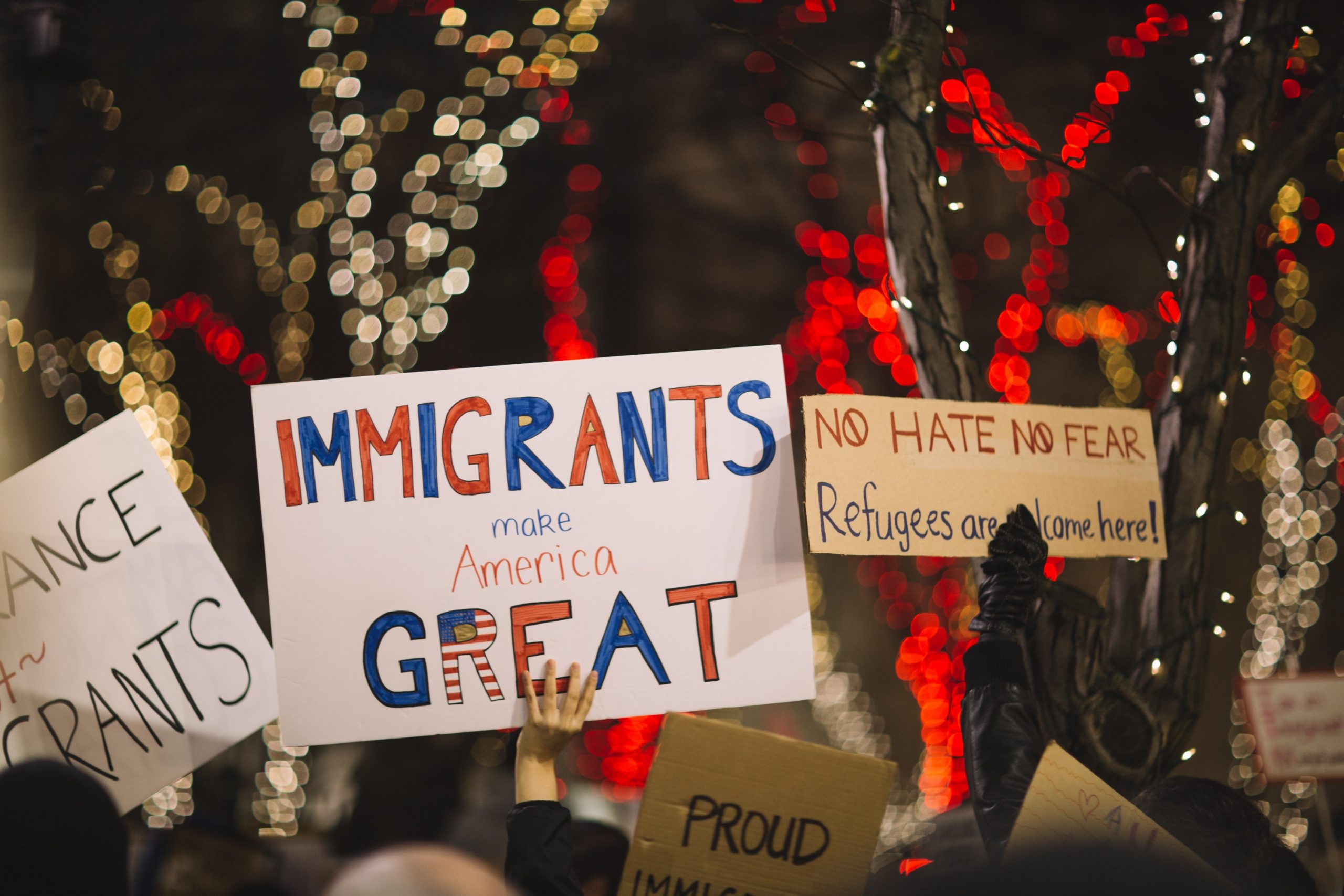
Stephanie Gabriela Lopez recounts her experience of watching immigration court hearings on the US-Mexico border.
I realised that the judge was asking immigrants, with limited resources, money, language skills and time, to produce work that typically takes attorneys months to complete.
Stephanie Gabriela Lopez
My first experience witnessing immigration court proceedings inside a detention facility was on the US-Mexico border. It was July 2018 and the family separation crisis was at its peak.
Because the US government was not forthcoming with information, a network of non-profit organisations had come together to help reunite separated families. After taking a seat in court, I watched as detainees from Latin America and Africa filed into the room.
It was heartbreaking to witness the callousness of the court, which expected this group of immigrants, who did not know where their children were, to navigate the complex world of US immigration law in one short hearing. Some detainees tried to explain why they had travelled to the US, but the judge did not listen to their claims and quickly asked if they chose to represent themselves or needed more time to find counsel.
If they decide to self-represent, the judge instructed them to fill out an asylum application and to provide all the necessary documentation to support their claims.
Having worked at Kids in Need of Defense (KIND), a non-profit that provides legal representation for immigrant and refugee children, I realised that the judge was asking immigrants, with limited resources, money, language skills and time, to produce work that typically takes attorneys months to complete.
As I sat there watching the proceedings, I thought to myself; maybe if they asked for more time, they would find an attorney who could help them. However, for most of them, this would mean spending more time apart from their children, being subjected to abuse and coercion in detention and making phone calls that they could not afford.
As I continued working with this population, I witnessed how immigration officials coerced hundreds of parents into signing documents they did not understand, including their own deportation orders and adoption papers for their children.
It has now been months since that trip and I am still bearing witness to the pain and trauma the US government inflicts on immigrant children and families. Nevertheless, I also see the strength and resilience that propels these families forward and that gives me hope.
*Stephanie Gabriela Lopez [2014] did an MPhil in Latin American Studies. She is now a human rights advocate, who is passionate about advancing the rights of immigrants and children in the United States and around the world. This article is published in the current edition of The Scholar magazine. Picture credit: Nitish Meena on Unsplash.jpg

Stephanie Gabriela Lopez-Kessinger
- Alumni
- United States
- 2014 MPhil Latin American Studies
- Pembroke College
Stephanie Gabriela Lopez is the Program Director at LatinasRepresent, an initiative that seeks to increase the number and diversity of Latinas who pursue public service opportunities in the United States. In this role, she oversees and manages strategic planning, development, programming, communications, and coalition work. She is a first-generation Salvadoran-American with experience in international education, children's rights, and immigration advocacy. She earned a Master's degree in Latin American Studies from the University of Cambridge, while on a Gates Cambridge Scholarship, and holds an undergraduate degree in political science and mass communication and journalism from California State University, Fresno.












